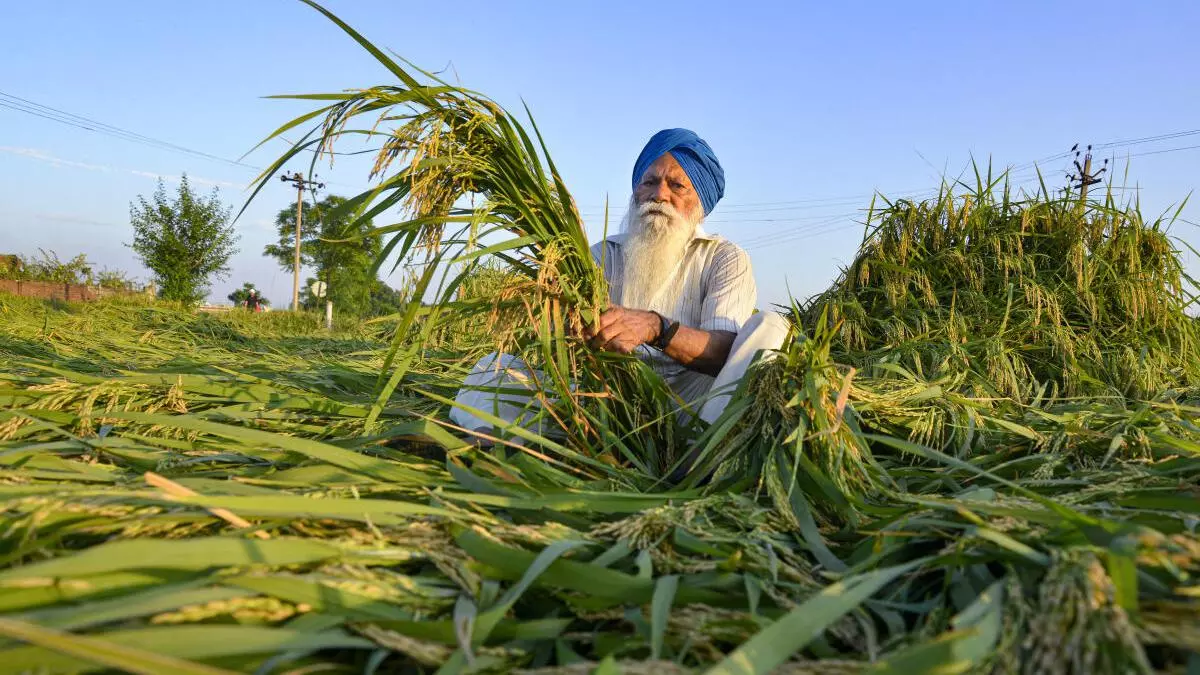Farmers in 8 countries find climate change a major challenge: Survey
Many farmers surveyed in eight countries, including India, have reported some change in weather over recent years. Eight out of 10 farmers, who have experienced the impact of heat, anticipate reduced yields in the coming years.
These are some of the key findings from the ‘Farmer Voice’ survey conducted by the life science company Bayer. It had commissioned Kekst CNC to independently interview 800 farmers from Australia, Brazil, China, Germany, India, Kenya, Ukraine, and the United States in equal numbers.
While 76 per cent of farmers were worried about the impact of climate change in the future, 71 per cent said climate change already has a large impact on their farm.
Many farmers in these countries mentioned they have experienced very high temperatures, long periods of high temperature, and droughts in their farms in recent years. Nearly 73 per cent of farmers experienced increasing pest and disease pressure in their farms because of climate change.
According to the survey, climate impacts are estimated to have reduced farmer incomes by 15.7 per cent on average over the past two years. One in six farmers in these eight countries even identified income losses of over 25 per cent during this period.
Rodrigo Santos, Member of the Board of Management of Bayer AG and President of the Crop Science Division, who addressed a select virtual media round table, said: “Farmers are already experiencing the adverse effects of climate change on their fields and at the same time they play a key role in tackling this huge challenge. This is why it is so important to put their voice front and centre. The losses reported in this survey make the direct threat climate change poses to global food security crystal clear. In the face of a growing world population, the results must be a catalyst for efforts to make agriculture regenerative.”
Mitigation steps
The ‘Farmer Voice’ survey also found that farmers are taking steps to mitigate climate change and value innovation.
More than 80 per cent of the surveyed farmers are already taking or planning to take steps to apply measures that contribute to reducing greenhouse gases. The top focus areas are: using cover crops (43 per cent), using renewable energy or biofuels (37 per cent), and using innovative seeds to reduce fertilizer or crop protection use (33 per cent).
Over half (54 per cent) of farmers say they already apply measures to protect insects or plan to do so in the next three years.
Nearly 53 per cent of farmers said access to seeds and traits designed to better cope with extreme weather would most benefit their farm, and 50 per cent called for better crop protection technology. Almost 42 per cent said that better access to irrigation technology would benefit their farm.
Looking at their practices, improving efficient land use, diversifying crops, and better soil health were ranked as the most important routes to success.
Economic challenges
Economic challenges are the biggest priority for the farmers in these nations over the next three years. Over half (55 per cent) of the farmers placed fertilizer costs among the top three challenges, followed by energy costs (47 per cent), price and income volatility (37 per cent), and the cost of crop protection (36 per cent). The importance of fertilizer costs becomes most apparent in Kenya, India, and Ukraine.
Stating that farmers are facing multiple and related challenges, Rodrigo Santos said: “But despite this, we found that they are hopeful – almost three-quarters say they feel positive about the future of farming in their country.”
